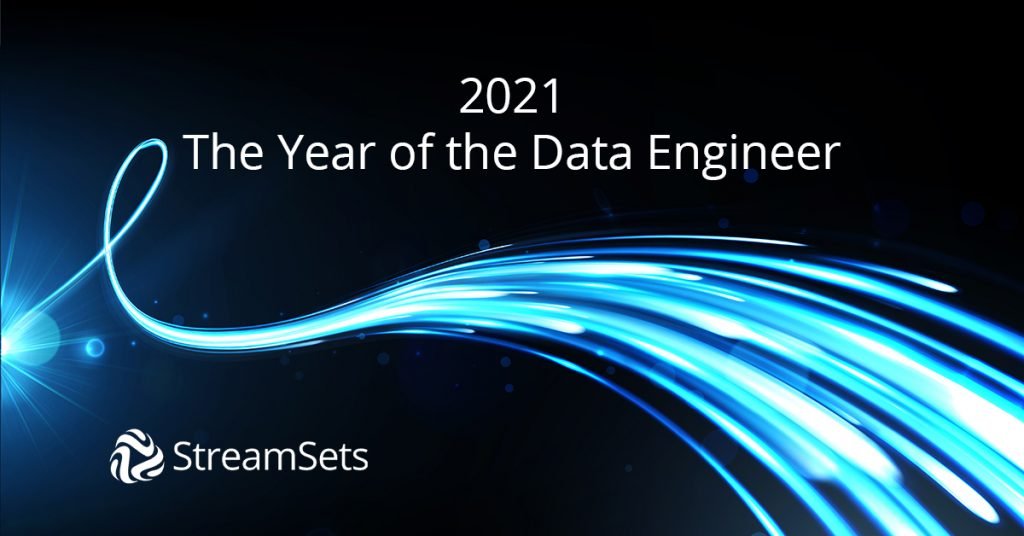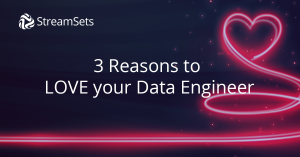2021 is going to be a good year. We may not be there quite yet, but there’s no denying things are looking up. As vaccines kick in across the world, focus will shift from fighting for survival to reopening, rebuilding, and strengthening fractured economies alongside our returning health. Remember our 3 scenarios for adjusting your data practice? It’s clear that whatever comes next, the data engineer will play a critical role.

Data engineers are tops on the 2021 ‘what’s hot’ list and it’s their year to shine. That’s why we’ve declared 2021 the Year of the Data Engineer.
What Is a Data Engineer?
The data engineer is the technical professional who understands how data analysts and data scientists need data, then builds the data pipeline(s) to deliver the right data, in the right format, to the right place. The best data engineers are able to anticipate the needs of the business, track the rise of new technologies, and maintain a complex and evolving data infrastructure.
Here’s why those skills will be so in demand in 2021, and how you can make the most of it…
Calculating the Value of Data Engineering
Data engineers are busy—always. Demand has grown 50% year-over-year, for years, with no sign of slowing down (Dice Tech Job Report). It shows in compensation too; this year’s Robert Half Technology Salary Guide 2021 puts data engineers as the #1 highest paid non-executive IT job. Median salary? $166,500.
And as data engineers know, they earn their keep. Last year was hard. In an already constantly changing world, somehow change got even crazier. Keeping up with on and off shutdowns and/or ebbs and flows in business, while fighting for literal survival, often meant there was only time for ‘fighting fires.’ Taking a strategic view took a backseat to getting things done.
But data engineers wield enormous power in their control of data, and this power requires a thoughtful approach. Their ultimate job is to enable fast, confident decision making for excellent business outcomes. It’s a big job, but one that’s highly achievable in 2021, the Year of the Data Engineer.
Take a cue from DNB and learn from the 13 Data Engineering Best Practices that make their data pipelines “consistent, robust, scalable, reliable, reusable and production ready, so that data consumers like data scientists can focus on results, instead of worrying about data management.”
The Future of Data Engineering
Driving outcomes is not only a power in today’s world—it’s a super power. It requires real-time data, and data engineers are in the unique position of enabling their data scientists and business partners with that data.
So far, it’s been harder than it should be for a data engineer to achieve their goals (there’s a reason those backlogs are a mile long). Complex ETL tools or black-box solutions make ongoing operations painful, leading to brittle mappings or data pipelines that require significant rework every time anything changes in the source or destination. Data engineers still spend 80% of their time doing maintenance work. No one has that kind of time to waste!
Data engineers: unleash your superpowers! It’s time to stop worrying about the “how” and focus on the “what” of your data, by automating as much as possible. So set aside the clunky traditional solutions and operationalize your data with StreamSets.
Whether you’re building pipelines to stream Kafka messages to Amazon S3 or Postgres CDC pipelines for Amazon S3 or if you just need to migrate your on-prem data lake to a cloud data lake in hours, StreamSets has your back.
Go Fast, Be Confident
In 2021, every minute will count as businesses reopen and rehire, vaccines get distributed, governments and nonprofits address climate change, and more. Each of these involves major decisions and mass logistics and all hinge on real-time data, delivered by data engineers.
Are you ready for 2021? We are! Next up: 3 Reasons to Love Your Data Engineer.

